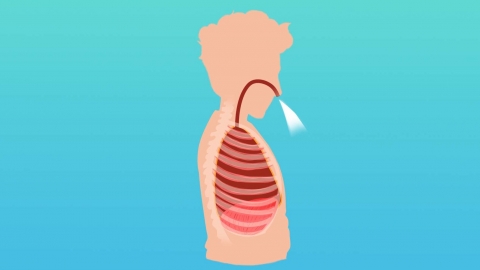What are the clinical manifestations of malignant pleural effusion?
In general, the clinical manifestations of neoplastic pleural effusion mainly include chest pain, dyspnea, cough, fever, weight loss, and other symptoms. If any discomfort occurs, it is recommended to seek timely medical evaluation and treatment at a正规 hospital. Specific analysis is as follows:

1. Chest Pain
Tumor invasion of the pleura or pleural fluid irritation can cause pleural traction or inflammatory reactions, leading to chest pain. The pain is usually dull or aching and worsens with breathing or coughing. In some patients, the pain may radiate to the shoulders or back, affecting daily activities.
2. Dyspnea (Shortness of Breath)
An increased volume of pleural fluid compresses lung tissue, restricts lung expansion, and reduces pulmonary ventilation, resulting in dyspnea. Symptoms become more pronounced after physical activity, and in severe cases, patients may experience shortness of breath and rapid breathing even at rest.
3. Cough
Pleural fluid irritating the bronchial mucosa or direct tumor compression of the bronchi can trigger airway spasms and cause coughing. The cough is typically a dry, irritative cough; some patients may produce small amounts of white sputum. Severe coughing can exacerbate chest pain.
4. Fever
Fever may result from absorption of necrotic tumor tissue or concurrent infection, triggering systemic inflammatory responses. Body temperature is usually low-grade or moderately elevated, although a few patients may develop high fever. The fever tends to persist for a long duration and may not respond well to conventional antipyretic medications.
5. Weight Loss
Tumors are considered a wasting condition, consuming large amounts of nutrients in the body. Additionally, discomfort caused by pleural effusion may reduce appetite, contributing to weight loss. Patients often experience associated symptoms such as fatigue and lethargy.
If any of the above symptoms are noticed, prompt medical consultation is advised to determine the underlying cause and initiate early treatment. Daily management should include adequate rest, avoidance of strenuous exercise, maintenance of balanced nutrition to enhance immunity, and a positive mindset to actively cooperate with treatment.








